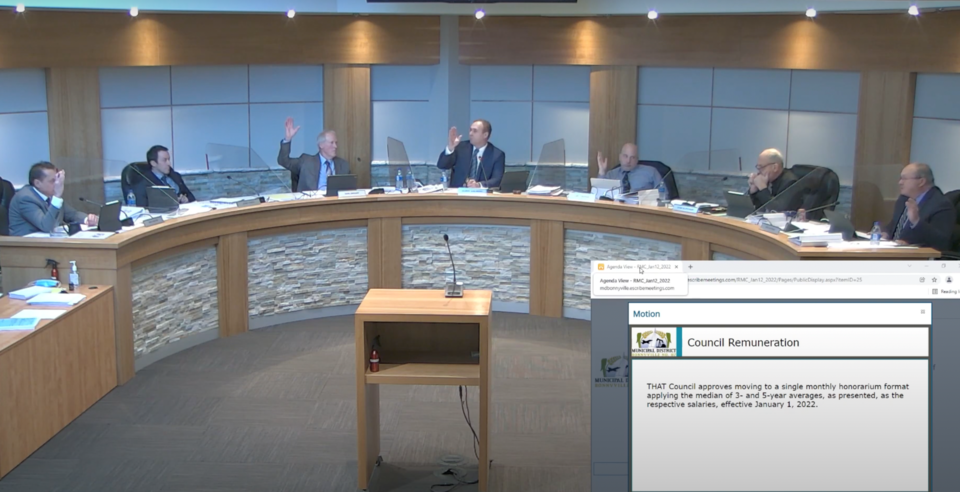BONNYVILLE – On Jan. 12, council gave first reading to a motion that would see a single monthly honorarium given to members of council, instead of the current base-pay plus meeting-pay model that compensates councillors for their time serving the municipality.
“(The current) system can be somewhat confusing, adds to staff's workload, and is difficult to track. As a result, administration is suggesting that council consider a single monthly honorarium,” CAO Al Hoggan told council. “Many larger municipalities in Alberta have already moved to a monthly ‘salary’ structure.”
Hoggan made a point to say, “This is not a raise for council, this is just moving the multiple meetings into a single number.”
Moving to a monthly honorarium would eliminate the need for councillors to complete detailed monthly timesheets. However, forms for meals and mileage would still need to be filled out by council members for reimbursement.
Based on three-year, five-year and median compensation rates, administration recommended that the reeve’s compensation be $6,750 per month ($81,000 per annum), and councillor compensation be $4,750 per month ($57,000 per annum).
“There should be little political push back as these monthly compensation figures are just merely the average of the last five and three-year compensation rates shown in a different format,” Hoggan stated.
Information on the average salaries for councils across the province will also be presented by administration once municipal budgets become available.
“I'm opposed to this motion,” said Coun. Josh Crick, speaking first.
Crick explained that he felt that the current system, where councillors tracked their public engagements on a timesheet, similar to how they document their mileage, offers a way for others to see how active each councillor is.
“In the future, there could be somebody on council (doing) virtually very little of anything, and they are still being paid a full salary verse other councillors (who) may pick up the slack of doing extra work and not be adequately reimbursed,” said Crick. “I would encourage everybody to vote against this motion.”
Coun. Ben Fadeyiw, who supported the motion to move to an honorarium system, said “It's one of those things where, as councillors, we all put in our 100 per cent effort. During my experience there is not a single councillor that I have met that hasn't performed well, and we are here to police ourselves.”
Fadeyiw went on to say as elected officials, voters will notice if a councillor is not showing up to functions or public events.
“I think it is a moral issue, but I appreciate your comments – but I disagree with them,” said Coun. Dana Swigart in response to Crick’s statement.
Swigart added that most meetings that councillors attend have meeting minutes that are sent to administration that can be used to confirm attendance.
Council approved the motion with only two councillors opposed to switching to an honorarium model. Those opposed were first-time councillors Crick and Don Slipchuk. All councillors who had supported the motion have previously sat as members of the MD’s council.



